Why Does My Dog Sit on My Lap [7 Reasons Why]
Just about every dog owner knows the feeling. You’re sitting on the couch, minding your own business, when all of a sudden, you feel a heavy weight on your lap. It’s your dog, giving you the most pathetic look imaginable as they try to climb onto your lap.
Of course, you can’t resist and spend the next few minutes petting them as they enjoy the warmth and love. But have you ever wondered why dogs love sitting on our laps so much? Keep reading to find out!

1) To Show Affection
When you’re settled on the couch with a good book, the last thing you want is your dog’s cold nose pushing into your hand, or their furry body stretched out across your lap. But as annoying as it can be, there’s actually a reason why your dog behaves this way.
According to animal behaviorists, dogs are descendants of wolves, who are social creatures that live in packs. In the wild, wolves will touch one another to show affection and to strengthen their bond within the pack.
When your dog lays on you, they’re doing the same thing – trying to show you how much they love you and reminding you that you’re part of their pack. Their bond with us is so strong that they want to be as close to us as possible, and what better way to do that than by sitting on our laps?
So next time your dog hops up on the couch, try to see it as a sign of affection instead of an annoyance.
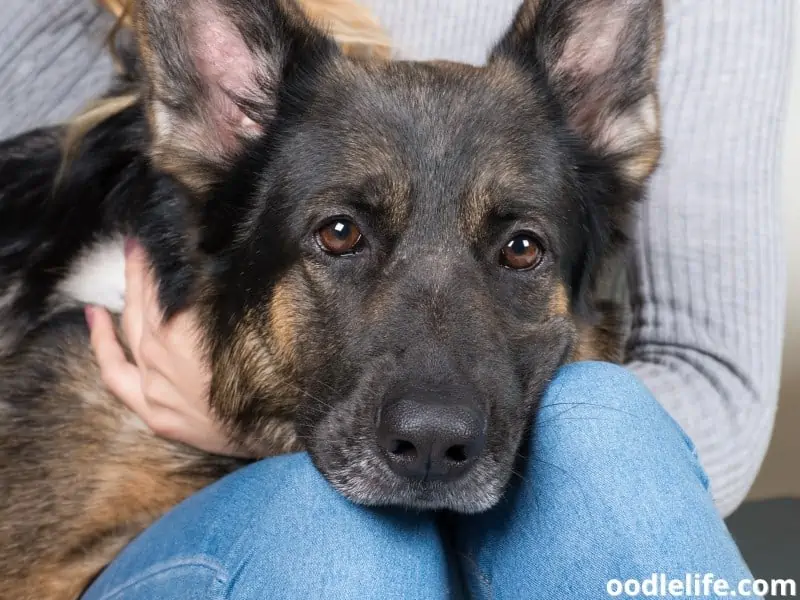
2) For Warmth
If you’re a dog owner, chances are you’ve had your furry friend lay on your lap to get warm at least once. But why do they do this? Is it just because they’re lazy, or is there another reason?
Let’s take a look at some of the possible reasons behind this behavior.
One possibility is that your dog is trying to create a warm microclimate for themselves. By lying on your lap, they’re able to block out drafts and chillier temperatures. Additionally, the heat from your body helps them to regulate their own body temperature better.
Another possibility is that your dog is trying to take advantage of your warmth because they’re not feeling well. For example, if your dog is sick or in pain, they may seek warmth to comfort themselves.
Dogs are also prone to getting colds and other respiratory infections, so if your dog seems under the weather, it’s worth taking them to the vet for a check-up.

3) For Attention
Dogs are social creatures that crave attention and love from their owners. While some dogs might seek attention by barking or whining, others might lie on your lap as a way to get your undivided attention.
This gives them a front-row seat to all the action and ensures that they won’t miss a single thing. Plus, they can give you those big, soulful eyes that are impossible to resist. So whether you’re watching TV, working on the computer, or just relaxing, your dog knows that your lap is the perfect place to be.
And who could blame them? After all, there’s nothing better than spending quality time with the one you love.
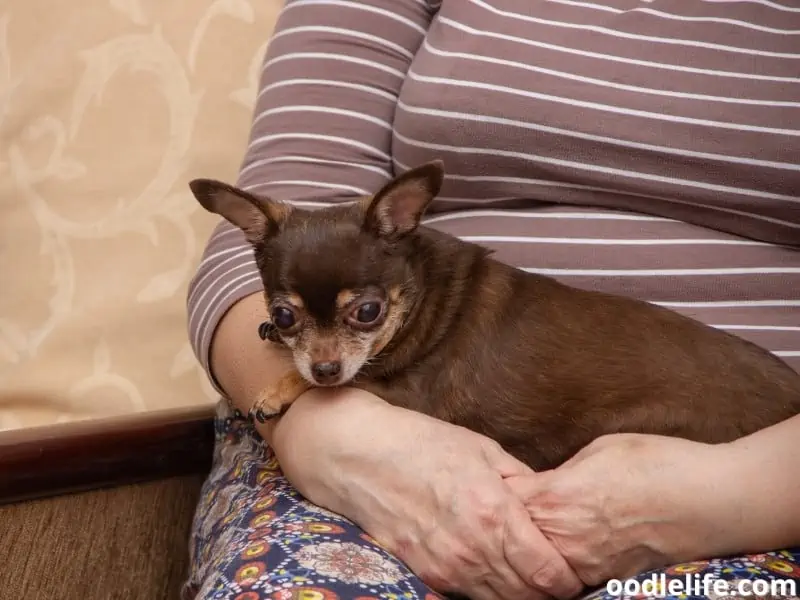
4) To Comfort You
Have you ever been feeling down and had your dog come over and lay on your lap? It’s like they know just what you need, right when you need it. And there’s a reason for that.
Dogs are natural comfort-seekers, and they’ve been known to lay on people for centuries.
In fact, the ancient Greeks believed that dogs had healing powers and would often allow them to lay on sick people in the hopes that they would be cured. While we now know that dogs don’t have magical healing powers, their ability to provide comfort is still very real.
And there’s science to back it up. Studies have shown that the simple act of petting a dog can lower levels of stress hormones in the body and help to reduce anxiety and depression.
So next time your dog decides to curl up on your lap, take a moment to appreciate the comfort they’re offering and enjoy the calmness that comes with it.
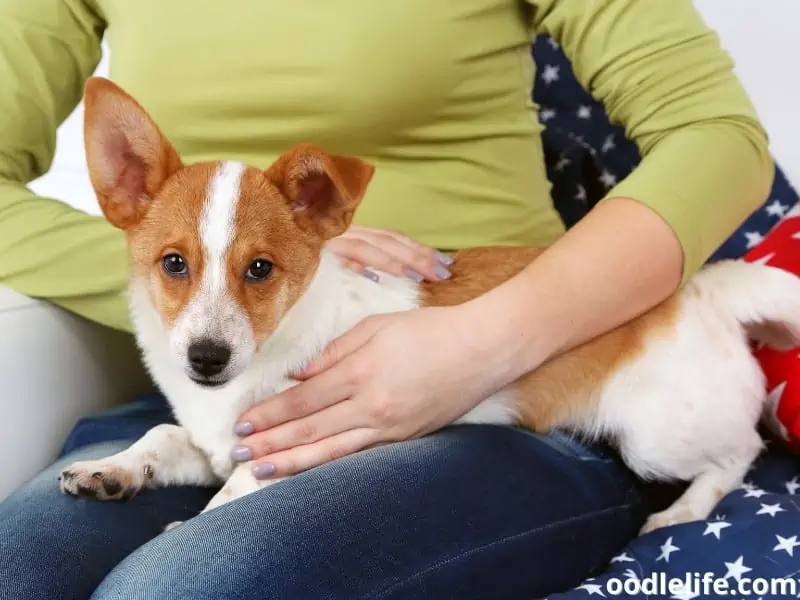
5) To Feel Safe
Some dogs feel safest when they’re close to their favorite people. When they’re on our laps, they know we’re there to protect them from anything that might hurt them. This is especially common in rescue dogs who may have had traumatic experiences in the past.
Dogs are natural pack animals, and they instinctively seek out the company of their pack members when they feel threatened or uneasy. So by laying on your lap, your dog is creating a physical connection that makes them feel safe and secure. In a way, it’s similar to the way a child might seek comfort from their parents.
So next time your dog jumps up for a cuddle, take it as a compliment – they trust you to keep them safe and sound.
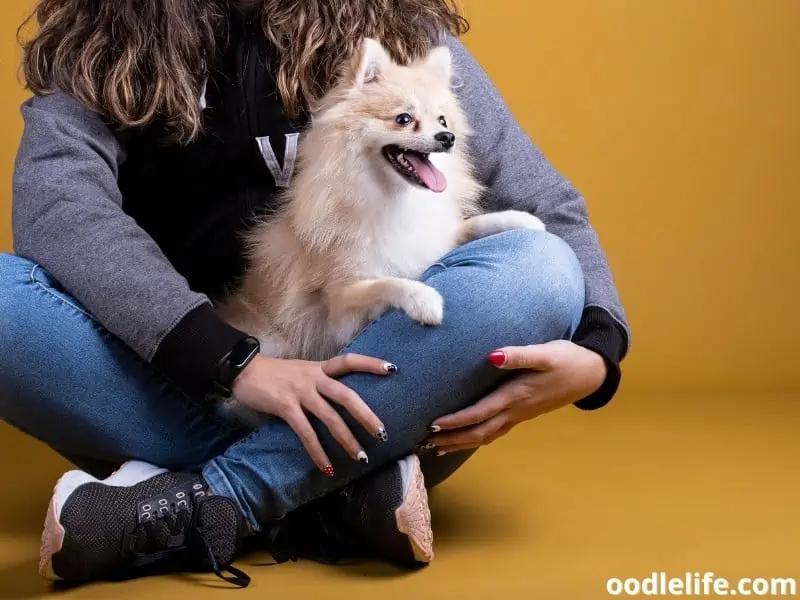
6) It’s Instinctual
It turns out that there’s a bit of biology behind this behavior. Dogs are descendants of wolves, and in the wild, wolf pups would often crawl onto their mother’s laps to stay warm. Over time, this behavior became instinctual, and it’s now common for dogs to seek out warmth and comfort by lying on their owner’s lap.
So next time your dog jumps up on your lap, you can take comfort in knowing that it’s just following its instinct.
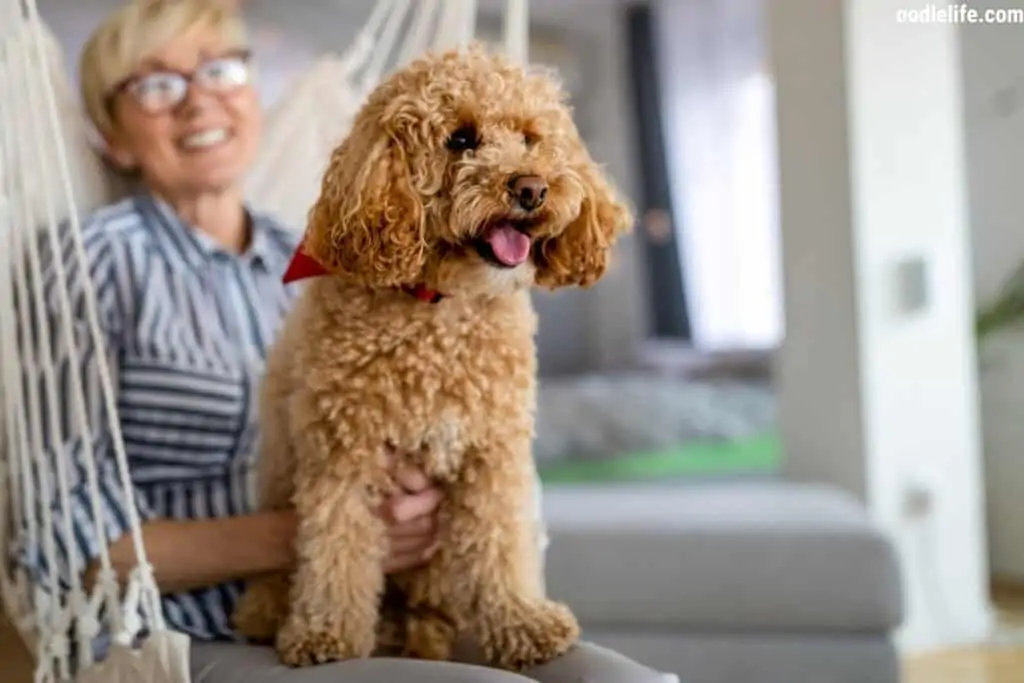
7) Because They Can, and You Encourage it!
Let’s face it, some dogs just like being on our laps because they can. If you’ve ever had a small dog, you know that they often think they’re much bigger than they actually are.
Your dog loves to lay on your lap because they know you enjoy it. Every time they jump up, they get a pat on the head or a belly rub. They know that this is something that makes you happy, so they continue to do it. In their mind, they are just trying to make you happy and show their affection for you.
So the next time your dog jumps on your lap, take a moment to appreciate their love for you. Then, return the favor with a belly rub or some ear scratches. They’ll be sure to enjoy it just as much as you do!
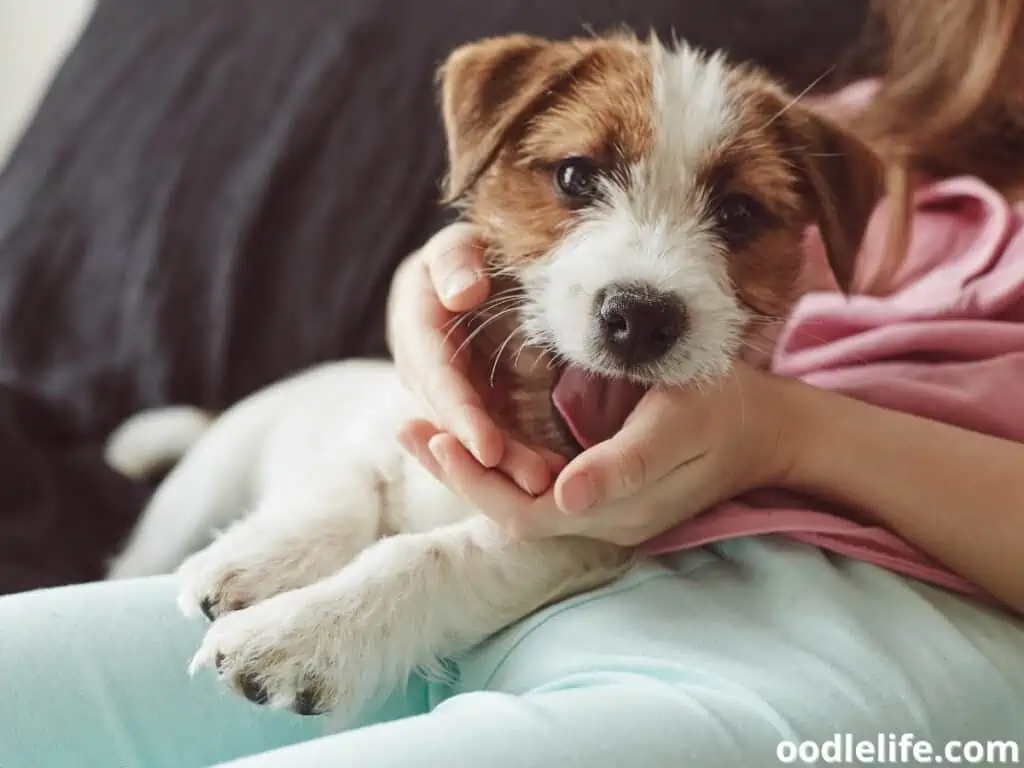
The Health Benefits of Having a Lap Dog
There are many benefits to having a lap dog, both for you and for your furry friend. First and foremost, lap dogs can help reduce stress and anxiety. If you’ve ever had a bad day at work or felt overwhelmed by life in general, you know how calming it can be to come home and cuddle with your pup.
Dogs have an uncanny ability to make us feel better, even when nothing else seems to be working.
Lapdogs can also provide valuable physical contact, which is essential for both humans and animals. Studies have shown that physical touch can help reduce blood pressure, lower heart rate, and release stress-relieving hormones like oxytocin. So not only will cuddling with your lap dog make you feel good mentally, but it can also have positive physical effects.
In addition, lap dogs can serve as loyal protectors. They may not be able to deter burglars or fend off wild animals, but they will alert you if something doesn’t seem right. And if someone does manage to break into your home, your dog will likely bark until you wake up or come downstairs to investigate.
Of course, this isn’t always the case—some small lap dogs are timid and won’t make much noise—but it’s definitely worth considering if you’re looking for an extra sense of security.
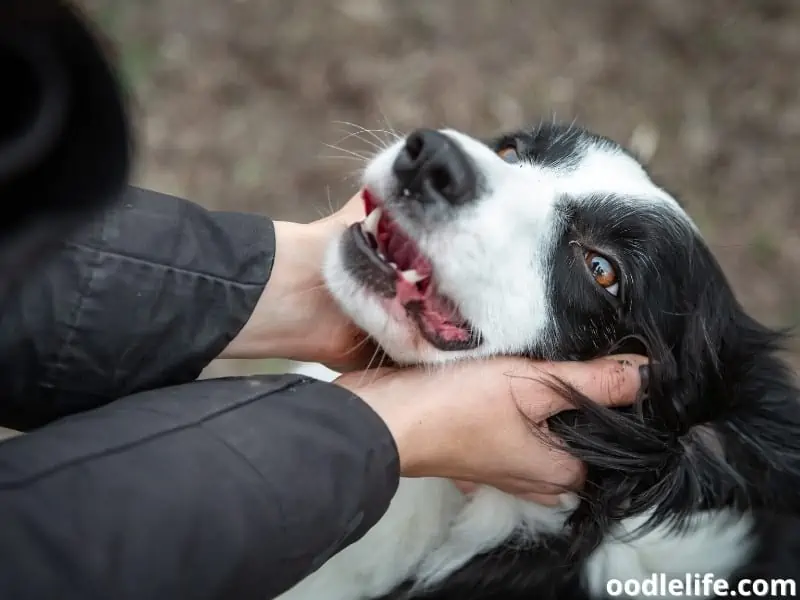
How to Keep Your Dog From Sitting on Your Lap?
Not everyone enjoys having a dog on their lap, and that’s perfectly understandable. However, if you’re not a fan of lap dogs, there are a few things you can do to keep your furry friend off your lap.
The first thing you need to do is be consistent with your commands. Dogs are creatures of habit, so if you allow them on your lap sometimes and not others, they’re going to get confused. So every time your dog jumps on your lap, tell them “no” in a firm voice and then gently push them off.
It’s also important to provide an alternative for your dog. For example, if you don’t want them on your lap, give them a blanket or pillow of their own to lie on. This will give them a comfortable place to relax without getting on your nerves.
Finally, make sure you’re providing enough exercise for your dog. A tired dog is less likely to want to jump on your lap, so take them for long walks or runs every day. If they have pent-up energy
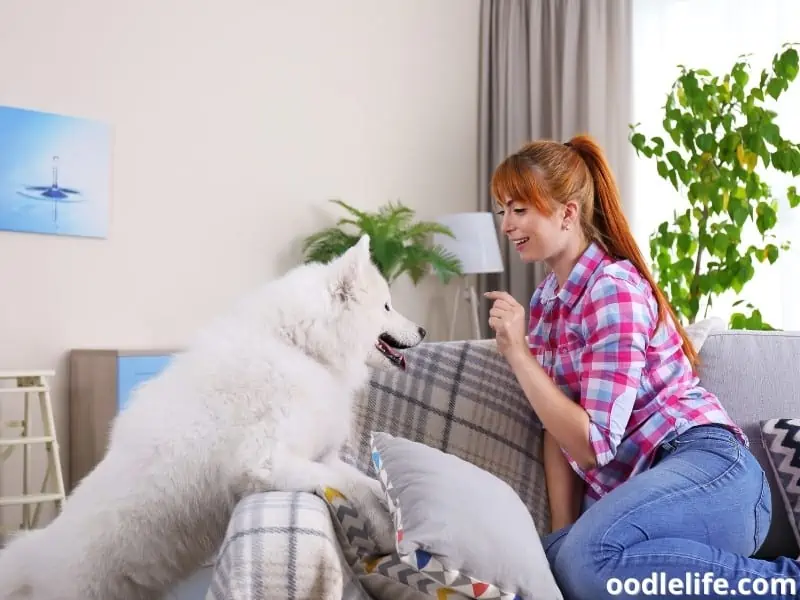
Conclusion
There you have it – seven of the most common reasons why your dog might be laying on your lap for attention. So next time Fido jumps up in your lap, take a moment to reflect on what might be motivating them. Chances are, it’s one of the reasons listed above!